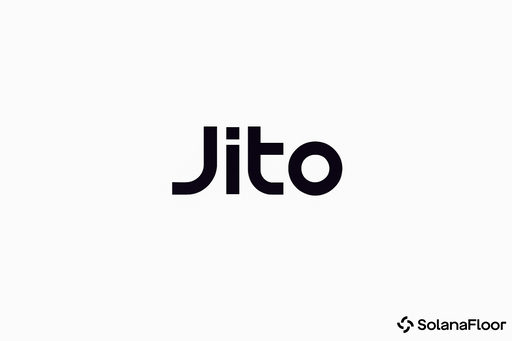
Jito DAO propone di indirizzare il 100% delle commissioni alla tesoreria della DAO tramite JIP-24
La proposta di JIP-24 incanala tutte le commissioni di Block Engine e BAM direttamente alla tesoreria della DAO, rafforzando la governance dei titolari di token e la futura creazione di valore.
- Pubblicato:
- Modificato:
Il Jito DAO ha proposto JIP-24, una proposta di governance che ristruttura in modo significativo la distribuzione dei ricavi delle commissioni all'interno della rete Jito. Con un ampio sostegno da parte dei detentori di token, la proposta assegna tutte le commissioni del Jito Block Engine e tutti i futuri ricavi del nuovo Block Assembly Marketplace (BAM) alla tesoreria della DAO. Questa mossa centralizza il controllo sulle entrate del protocollo chiave e le allinea più strettamente agli interessi dei titolari di token JTO.
Precedentemente, la commissione del 6% sulle ricompense del Block Engine veniva divisa equamente tra Jito Labs e la DAO Jito. Con l'entrata in vigore del JIP-24, l'intero 6 percento sarà ora destinato al DAO. Oltre a consolidare le entrate esistenti, la proposta destina questi fondi ai programmi di accumulo di valore condotti dal SubDAO della criptoeconomia (CSD), istituito nell'ambito della JIP-17.
Perché il cambiamento è importante
JIP-24 mira ad approfondire l'allineamento del valore tra la rete Jito e il suo token nativo, $JTO. Reindirizzando tutte le commissioni alla tesoreria della DAO, la proposta consolida il ruolo della DAO come entità centrale nella governance tecnica ed economica. Inoltre, riflette un cambiamento emergente in tutto il settore in cui il valore della catena matura direttamente ai titolari di token.
Il lancio di BAM rappresenta un notevole sviluppo nella più ampia economia del blockspace di Solana. BAM introduce un nuovo livello all'infrastruttura di Jito, offrendo verificabilità, privacy e programmabilità nella sequenza delle transazioni. BAM consente inoltre di creare "plugin", che permettono agli sviluppatori di introdurre una nuova logica nel modo in cui vengono costruiti i blocchi. Si prevede che questi plugin generino ulteriori flussi di commissioni, che JIP-24 assicura andranno direttamente al DAO.
Come funziona il nuovo sistema di distribuzione delle tasse
La proposta delinea un chiaro insieme di fasi di implementazione:
-
Jito Labs e la Jito Foundation eseguiranno una Revenue Routing Transaction (RRT) o una modifica di configurazione equivalente per reindirizzare la loro quota di commissioni del Block Engine alla tesoreria del DAO.
-
Tutte le commissioni relative ai BAM, incluse le entrate dei plugin, saranno anch'esse reindirizzate allo stesso indirizzo.
-
La conferma di questi cambiamenti, compresi gli indirizzi aggiornati, sarà pubblicata pubblicamente.
La tesoreria della DAO, governata dai possessori di token $JTO, sarà l'unico destinatario di queste entrate. Il CSD proporrà quindi dei budget per impiegare questi fondi in iniziative di valorizzazione.
Benefici e rischi
Rivolgendo tutte le commissioni alla DAO si aprono nuovi flussi di reddito, in particolare dai plugin BAM, che potrebbero aggiungere una stima di 15 milioni di dollari di entrate annuali. Questi flussi sosterranno iniziative volte a incrementare il valore dei titolari di token. Il CSD guiderà questi programmi, assicurando che il capitale venga utilizzato in modi che siano sia d'impatto che efficienti.
Tuttavia, la proposta introduce anche una certa complessità. La gestione di molteplici flussi di entrate richiede solide pratiche contabili. Per far fronte a questo problema, la DAO lancerà dei cruscotti aggiornati per tracciare i flussi di commissioni BAM e Block Engine, insieme a un resoconto annuale su come vengono utilizzati i fondi. La proposta prevede anche rischi di esecuzione, come potenziali ritardi nella riconfigurazione dei percorsi delle commissioni. Passi chiari e conferme pubbliche mirano a ridurre tali rischi.
Prospettive future
Nel breve termine, i possessori di token possono aspettarsi che il reindirizzamento delle commissioni inizi immediatamente, con la tesoreria della DAO che inizia ad accumulare le entrate che in precedenza affluivano a Jito Labs. Entro i prossimi uno o due trimestri, il CSD inizierà a distribuire programmi volti ad attivare questo capitale in modo da far progredire la crescita della rete Jito e ottimizzare l'accumulo di valore per JTO. Questi possono includere meccanismi come i riacquisti, le sovvenzioni per i rendimenti e i caveau per la commutazione delle commissioni.
Costituito nell'ambito del JIP-17, il CSD è un subDAO autonomo responsabile di affrontare le sfide tecniche e strategiche della token economy di Jito’
. Il suo mandato comprende il coordinamento delle competenze, lo sviluppo di una strategia basata sui dati e la sperimentazione di meccanismi criptoeconomici utilizzando una sub-tesoreria dedicata. Finanziato con 7,5 milioni di dollari in $JitoSOL e 5 milioni di $JTO, il CSD trascorrerà il prossimo anno esplorando e perfezionando i modi per allineare la larghezza di banda economica del DAO’con il token JTO.
A lungo termine, JIP-24 pone le basi per un motore di entrate sostenibile e trasparente. Con l'aumento dell'adozione di BAM e l'espansione del suo ecosistema di plugin, il DAO è posizionato per catturare più valore economico. Questo rafforza il ruolo del DAO al centro della rete Jito e rafforza il legame tra la crescita del protocollo e i benefici per i titolari di token.
Leggi di più su SolanaFloor
Come si comporteranno gli ETF Solana?


